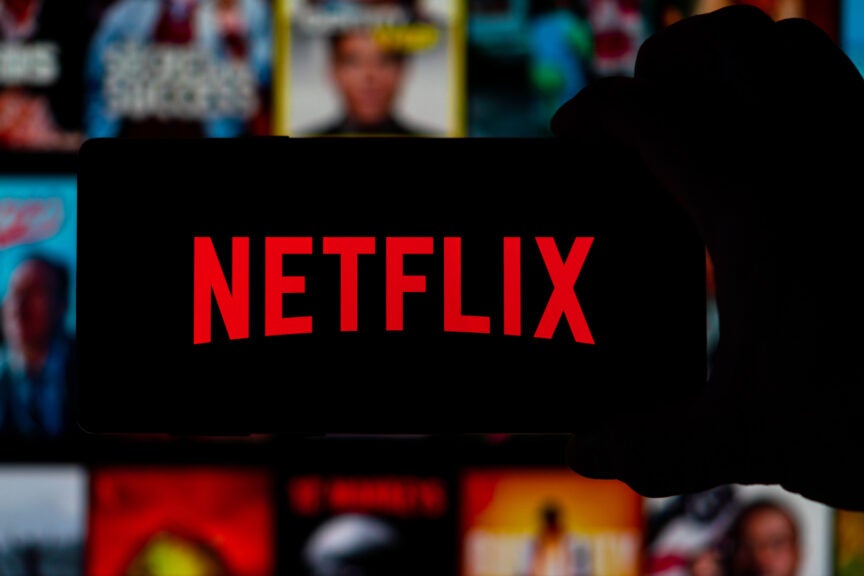The Netflix Deal That Got Away: Jeff Bezos’ Bold Bid Rejected
In a stunning revelation that rewrites streaming history, Netflix co-founder Marc Randolph disclosed that Amazon founder Jeff Bezos attempted to acquire the fledgling DVD-by-mail service in the early 2000s. The rejected offer—which could have reshaped the entertainment landscape—emerged during a recent interview, exposing a pivotal moment when two tech titans diverged on their paths to dominance.
The Fateful Meeting That Changed Entertainment History
According to Randolph’s account, Bezos approached Netflix in 1998 when both companies were in their infancy. Amazon, then primarily an online bookseller, saw potential in Netflix’s novel subscription model. “Jeff flew up to meet us in Santa Cruz with what seemed like a generous offer at the time,” Randolph recalled. “But Reed [Hastings, Netflix co-founder] had this unwavering vision that streaming was the future.”
Industry analysts estimate Amazon’s offer would have valued Netflix between $10-$15 million—a fraction of its current $180 billion market capitalization. The rejection forced both companies down parallel but separate paths:
- Amazon launched Prime Video in 2006 after developing its streaming technology
- Netflix pioneered streaming services in 2007 after perfecting its recommendation algorithms
- Both platforms now spend billions annually on original content ($17 billion and $6 billion respectively in 2023)
Why Netflix Said No to Amazon’s Millions
Randolph explained the decision stemmed from fundamental differences in corporate philosophy. “Amazon wanted to absorb us into their everything-store model,” he noted. “We believed focused execution in entertainment would create more value long-term.” This strategic divergence proved prescient—Netflix’s subscriber base grew from 300,000 in 1998 to over 247 million globally today.
Media historian Dr. Evelyn Cho of Stanford University contextualizes the decision: “This was a defining moment in the platform wars. Netflix’s refusal forced both companies to innovate aggressively. We essentially got two revolutionary services instead of one potentially compromised hybrid.”
The Ripple Effects of the Rejected Deal
The non-deal created competitive dynamics that continue shaping the industry. Amazon’s subsequent video investments transformed Prime into a comprehensive membership program, while Netflix’s first-mover advantage in streaming established it as the category king. Key outcomes include:
- The streaming wars triggering $100+ billion in content investments industry-wide
- Acceleration of cord-cutting, with 42% of U.S. households now subscription-only
- New production models disrupting traditional studio systems
Former Amazon executive Teresa Molison, who worked on early video initiatives, reflects: “That rejection lit a fire under Bezos. He became determined to build something that could eclipse Netflix, which explains Amazon’s relentless content spending.”
What If the Deal Had Happened?
Media analysts speculate the acquisition might have delayed streaming’s emergence. “Amazon was still perfecting e-commerce in 1998,” notes tech journalist Rahul Patel. “Netflix’s singular focus allowed it to take risks Amazon couldn’t have justified at that stage.” Counterfactual scenarios suggest:
- Slower transition from DVDs to streaming
- Less competition in original content production
- Potentially weaker challenges to cable television
However, some argue consolidation might have benefited consumers. “A combined entity could have offered deeper content libraries sooner,” suggests media consultant David Lang. “Though antitrust regulators might have blocked it eventually.”
The Enduring Lessons for Tech Entrepreneurs
This revelation offers case-study insights for startups facing acquisition offers:
- Vision matters: Netflix’s commitment to streaming-first thinking created an industry
- Cultural fit is crucial: The companies’ differing philosophies might have caused integration challenges
- Timing affects valuation: Early offers rarely reflect long-term potential
As Randolph concluded: “We didn’t reject Jeff Bezos—we rejected becoming someone else’s feature. That decision forced us to build something no one could ignore.”
The Streaming Landscape Today: Still Evolving
Twenty-five years later, both companies face new challenges. Netflix contends with market saturation and password-sharing crackdowns, while Amazon leverages video to drive Prime membership growth. Emerging trends suggest:
- Ad-supported tiers gaining prominence (now 15% of Netflix’s subscriber base)
- Global expansion becoming the next battleground
- AI-driven personalization emerging as a competitive differentiator
As the streaming wars enter their next phase, this revelation underscores how single decisions can alter technological trajectories. For entrepreneurs and investors alike, it serves as a potent reminder that today’s rejection might seed tomorrow’s revolution.
Want to explore more pivotal moments in tech history? Subscribe to our innovation newsletter for weekly deep dives into the decisions that shaped our digital world.
See more Business Focus Insider Team

